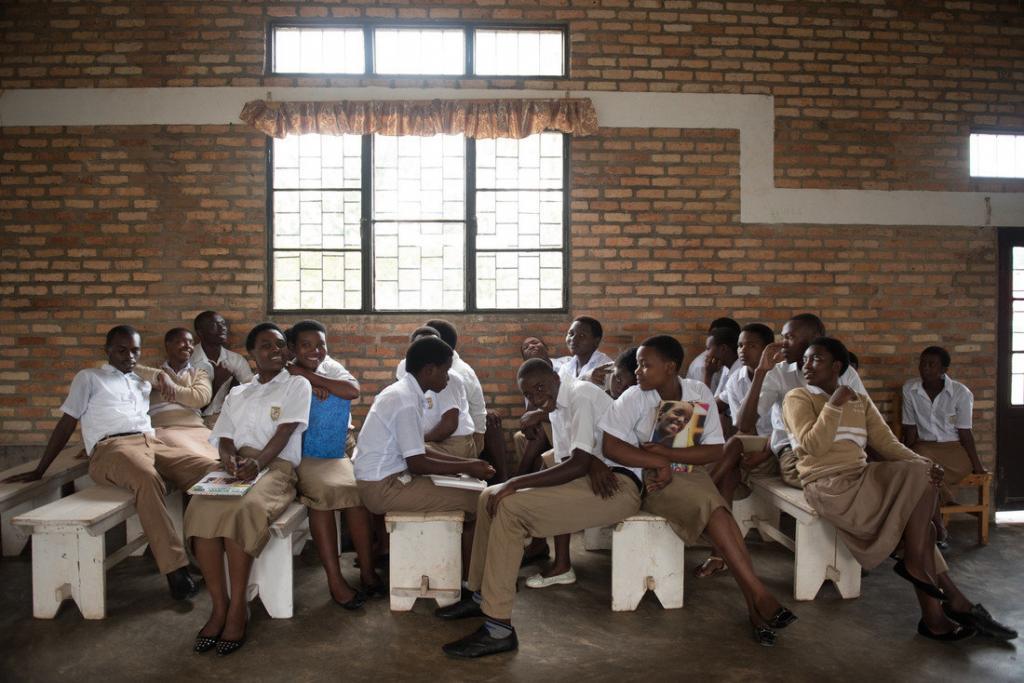
Building an Evidence Base for the Soft Skills Movement
There is now widespread consensus among employers, NGOs, policymakers and youth themselves that soft skills are a crucial ingredient for disadvantaged youth to get and keep jobs, start and grow small businesses, and become active and resilient economic agents able to negotiate the world of work. At the 2016 Global Youth Economic Opportunities Summit (GYEOS) convened by Making Cents International, soft skills were a crosscutting theme, even during summit sessions not explicitly about soft skills. In a short video, experts Laura Lippman of FHI 360 and Gary Walker of USAID discuss their importance for school, life, and work.
‘Soft skills’ have been described as transferable, life, socio-emotional, behavioural, employability, workforce readiness, non-cognitive and 21st century skills. Another related term, human advantage skills, posits them as uniquely human skills in an increasingly technologically-driven world. Geoff Colvin in a recent New York Times piece reflects on humans’ unique advantages over computers due to our empathy, our creative problem solving, team work, and story-telling abilities.
While consensus around the importance of soft skills has grown, the evidence on what works to help youth acquire these skills and use them to transition to work is still emerging. The multitude of terms and difficulty of measuring these skills have been a major challenge in building the evidence base. However, Childtrend’s report, ‘Key “Soft Skills” that Foster Youth Workforce Success’ (in partnership with FHI 360 and USAID), and 3ie’s evidence gap map on youth and transferable skills (in partnership with The MacArthur Foundation and The MasterCard Foundation) have helped move the needle significantly. Nonetheless, a recent systematic review by the ILO on Interventions to Improve Labour Market Outcomes of Youth “found no particular connection between soft skills and better labour market outcomes. … More impact research is needed to account for these design and implementation features.” Despite the growing consensus, challenges to measuring these skills make demonstrating their outcomes tricky.

Photo: Akaze Kanozi. A training workshop in Rwanda.
During the summit session, ‘Soft skills, hard tasks: The Challenge of Measurement,’ panelists discussed how building the evidence can help implementers and their funding partners better understand which soft skills are key in preparing youth for work, and how best to develop them. Employers in turn need to be able to easily assess the skills that youth are bringing to the workplace. Panelists and participants explored some of the challenges inherent in building this evidence base and ways to overcome them, including strengthening the capacity of self-report tools to capture and compare acquisition of soft skills across cultures. Some methods to improve measurement validity include forced choice, situational judgment tests and anchoring vignettes. The sector will benefit from USAID’s forthcoming YouthPower research ‘Identifying and Measuring Soft Skills for Cross-Sectoral Youth Development,’ which Laura Lippman discussed on the panel.
At another summit session, ‘The Importance of the Process and the Context When Developing Young People’s Soft Skills: Evidence from Africa and Latin America,’ Milena discussed case study research by the African Institute for Development Policy (AFIDEP) supported by The MasterCard Foundation. This work examines three recent efforts by governments in Africa to scale up training in soft and transferable skills within formal, public secondary education and TVET systems. The report, to be released in 2017, examines how the Rwandan government is bringing EDC’s Akazi Kanoze youth employment training program – originally designed for out of school youth – into secondary schools throughout the country. It also looks at how components of CAP Youth Empowerment Institute’s youth employability approach are being scaled through public vocational training centers in Kenya, as well as Nigeria’s senior secondary school curriculum reform, which is scaling up training in key trades and soft skills.
Panelists Ndung’u Kahihu from CAP Youth Empowerment Institute, and Annie Alcid from Education Development Centre’s Akazi Kanoze noted that a key challenge in embedding soft skills is ensuring that teachers and facilitators have the time and pedagogical skills required to support youth. When scaling up these kinds of training programs within public school or TVET systems, teachers and trainers must at once master new material while also learning a new way of teaching — much more active, hands-on and student-driven than previous approaches.
Maria Elena Nawar, presenting on behalf of the Multilateral Investment Fund (MIF) of the Inter-American Bank Group discussed a MIF programme in Brazil called Galpão Aplauso that uses the performing arts to support life skills development for youth. An evaluation of this program showed increases in employment and income for youth, but did not reveal an increase in students’ acquisition soft skills… a puzzle that may point to the difficulty of measuring these skills among youth.
MasterCard Foundation partners Education Development Centre and International Youth Foundation are innovating around how to address these problems, developing new kinds of soft skills assessments that are useful for youth, practitioners, and employers in equal measure.
The MasterCard Foundation plans to deepen our work to strengthen the evidence around soft skills. In addition to research conducted with 3ie and AFIDEP, the MasterCard Foundation is supporting the production of a policy brief on soft skills and youth employment, on behalf of the Youth Employment Funders Group (YEFG), composed of 20+ donors and multilateral organizations that meet to discuss and collaborate on youth employment issues. The brief, to be released early next year, will integrate and synthesize emerging evidence on soft skills development in the international youth employment arena, provide a user-friendly compilation of current best practice in low- and middle- income countries, identify evidence gaps, and offer policy recommendations.


